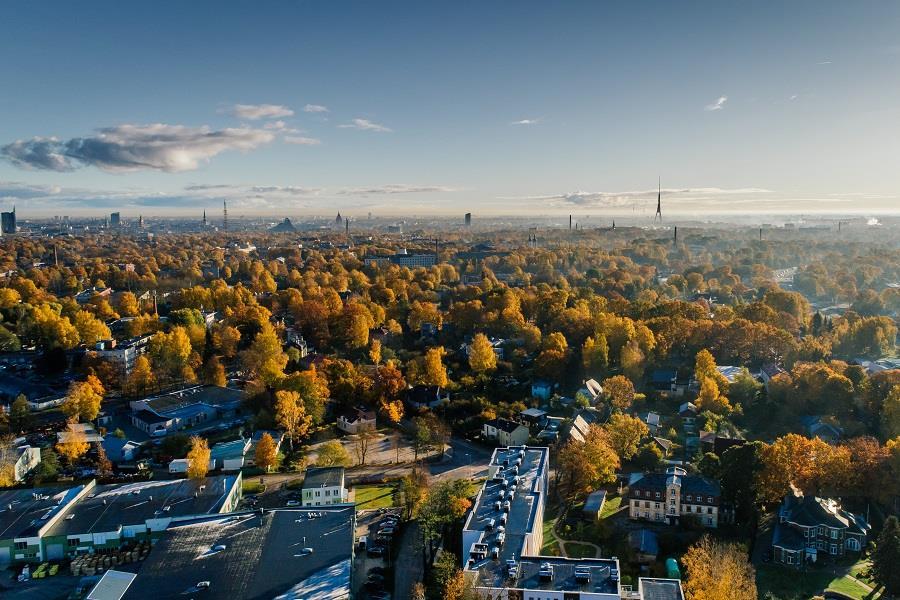Quale futuro avranno le soluzioni di integrazione con la Natura (NBS) già avviate?
L’UE ha pesantemente investito in progetti per la ricostruzione delle città attraverso soluzioni basate sulla Natura, che dopo le elezioni europee, potrebbero seguire percorsi diversi da quelli inizialmente impostati.
Le cosiddette “soluzioni basate sulla natura” (NBS) sono l’ultima tendenza in direzione dell’ambiente. L’uso di infrastrutture naturali, come giardini verticali, tetti verdi o muri verdi, sfidano le emergenze socio-ambientali più importanti degli ultimi decenni, ma solo di recente iniziano a essere sistematicamente progettate e sperimentate nei grandi centri urbani.
Anche recenti eventi mondiali hanno sottolineato l’importanza delle NBS. Come il World Water Day 2018, il cui tema era “Nature for water” e il 1° Forum mondiale sulle Foreste Urbane, svoltosi di recente a Mantova, in cui si è parlato delle politiche dell’UE per la biodiversità, i servizi ecosistemici e l’impegno pubblico nel trovare soluzioni basate sulla Natura.
Le NBS iniziano a circolare come parola d’ordine 5 anni fa, intorno al 2012-2013, dopo la crisi del 2008, periodo in cui le priorità dell’UE erano la crescita e l’occupazione. In tal senso molti fondi furono destinati all’innovazione e i ricercatori sulla biodiversità iniziarono a prevedere le NBS.
Gli scienziati che spingono sulla biodiversità o sulle scienze naturali in generale – tranne che sulla salute – non hanno ancora alle spalle forti interessi economici lobbistici e la ricerca è, quindi, molto frammentata, anche se muove un sacco di soldi in un’area di business potenzialmente molto ampia.
Il rinnovamento urbano, ad esempio, in molti casi è nelle mani dei soli architetti che di NBS non sanno nulla. Se ci fosse più informazione e consapevolezza dell’opportunità, sul mercato girerebbero più soldi, ma tutto è ancora molto frammentato.
Dopo le elezioni di maggio 2019, un nuovo esecutivo dirigerà l’UE.
La biodiversità è legata al cambiamento climatico, e quindi anche le NBS ne sono coinvolte. La sostenibilità rimarrà dunque fra le priorità. Si sta cercando così di mantenere le NBS nella prossima finanziaria europea, proposta già all’attuale Parlamento, che voterà prima delle elezioni.
NATURE-BASED SOLUTIONS – COOPERATION MANIFESTO
Re-naturing cities through the cooperation and
support of the European Nature-Based Solutions ProjectsOne of the most critical impacts on human society and the global environment is aggressive urbanisation, which has increased in scope and scale. Cities have become a point of intersection of problems characterized by complexity and uncertainty. NatureBased Solutions (NBS) are a unifying concept that can support transition to healthy, inclusive and sustainable communities in urban environments and that can help build resilience and climate adaptation.
The NBS Projects
The NBS Projects, funded by the European Commission through the Horizon 2020 Research and Innovation Programme, have the aim of bringing together cities, citizens, research institutes and industry to demonstrate Nature-Based Solutions and business models that can be scaled up and replicated in a joint effort towards a green urban transformation at a global scale. Since 2016 thirteen projects involving a network of more than seventy five cities and communities in Europe, Asia and Latin America are working on implementing and scaling up NBS in urban areas and measuring their social, environmental and economic impacts to transform cities into more sustainable and livable places. As the number projects and initiatives supporting NBS increases in the coming decade, there is a need for a common manifesto for guiding the cities’ adoption of nature-based solutions. As the number projects and initiatives supporting NBS increases in the coming decade, there is a need for a common manifesto for guiding the cities’ adoption of nature-based solutions.
We, the representatives and supporters of the EU – Nature-Based Solutions Projects
Acknowledge that
- NBS Projects propose and demonstrate an innovative paradigm shift capable of increasing the livability of cities, building resilience and fighting climate changes;
- NBS Projects offer citizens the possibility to participate in the co-design and co-creation of their cities, hence fostering the development of democratic societies;
- NBS Projects carry out innovative research, leading to new, open scientific knowledge;
- NBS Projects develop replicable intervention and financial models to boosttheir worldwide adoption;
- NBS Projects co-design business and exploitation strategies to optimize economic benefits and attract new investments on green initiatives;
- NBS projects implemented at the regional scale within the watershed provide sustainable interventions that improve the resilience of urban areas;
- NBS Projects have a huge potential to generate societal, environmental and economic impacts and create a global network of renaturing cities
There we declare our commitment to:
- agree to work together in a cross-project collaboration framework to enhance impacts and benefits;
- promote publicly all NBS Projects along with their actions and results;
- enlarge the nature-based solution research and demonstration network involving all societal actors;promote and exploit the results of this cooperation approach through proper mechanisms and tools, plain language, scientific accuracy and policy-focused strategies;
- increase the replication potential of EU-supported NBS projects in other European and extraEuropean cities by working together;
- promote the continuous innovation in the NBS framework;
- align technical, economic and social monitoring approaches to enrich a joint knowledge base;
- set up and support a NBS knowledge bank to make replicability, scalability and measurement actions globally available;
- support the creation and scaling up of a new market for and with nature-based solutions;
- provide knowledge repositories, tools for the assessment of benefits, co-benefits and costs of NBS projects, as well as tools to manage stakeholder’s participation processes in order to empower urban
- planning decision making;
- promote new policies in the NBS framework
We declare our commitment to foster the use of nature-based solutions to improve the quality of life of all citizens, to increase our cities’ resilience to climate change and sustain the green urban transition towards more sustainable cities and livable environments, by
- increasing the use of NBS with a citizen-centric approach to enhance well-being and inclusion through co-creation and co-implementation actions;
- favouring the integration of NBS in urban renaturing plans;
- providing evidence-based and open access knowledge for NBS;
- defining and overcoming NBS-related barriers (scientific, technical,political, legal, social, economic);
- exploring and applying new business and investment models for anyscale deployment of NBS;
- contributing to the enlargement of the network of societal actors
- involved in NBS;
- promoting the creation of a global NBS market;
- measuring and monitoring the specific and net effects and impacts of NBS;
#NBSMANIFESTO
L’opinione dei cittadini europei
Uno studio sull’opinione europea di tre anni fa, vedeva più della metà degli intervistati (53%) convinta che le presenza di soggetti naturali nell’area in cui vivevano fossa sufficiente, e ogni due intervistati su cinque (43%) affermavano che avvrebbero voluto un maggior numero di caratteristiche naturali presenti nel loro habitat. Solo una piccola minoranza (3%) riferiva che avrebbe preferito una minor presenza di fattori naturali.
Ovviamente non tutti i cittadini vedono nella Natura un vantaggio. Alcuni non vogliono le foreste verticali, ad esempio, perché temono che gli insetti entrino nei loro balconi o si chiedono chi pulirà le foglie. Lo studio dimostra che più di un europeo su quattro (28%) teme che queste nuove aree naturali non verranno poi mantenute correttamente. E circa un intervistato su cinque è preoccupato per l’alto costo di mantenimento che l’introduzione di nuovi elementi naturali comporterebbe in termini di prelievo fiscale per i residenti (22%) o di un aumento dei canoni d’affitto che si genererebbero per l’aumento del valore immobiliare delle abitazioni (18%).
I focus group, invece, che presentavano esempi concreti di NBS, affermavano in modo massiccio di voler adottare le NBS nelle proprie città.
E’ stata anche condotta un’indagine su un campione di diecimila persone provenienti da tutta l’Europa, che mostra come l’84% sia a favore di soluzioni basate sulla natura, mentre il 60% preferirebbe soluzione miste basate sulla natura e la tecnologia. E un quarto della popolazione sarebbe addirittura pronto a metterci del suo, in termini di impegno, tempo o persino denaro – per poter partecipare alla creazione di NBS per la città.
la Redazione
Linkografia:












